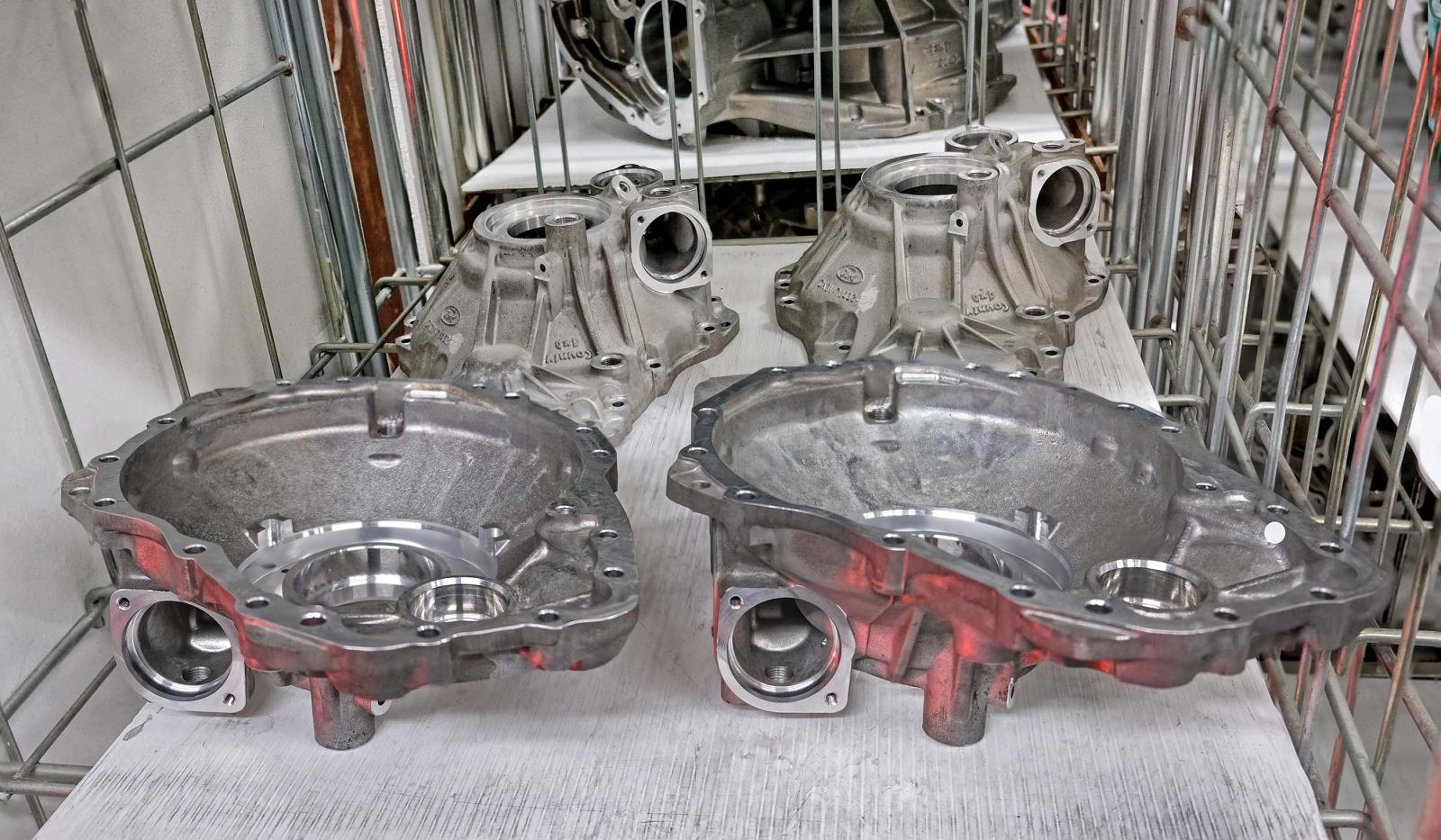
Production of cast and machined Ford Transit transmission components at MJ Allen Group is set to double by Spring this year.
A substantial proportion of MJ Allen Group's more than £30 million annual turnover comes from gravity die casting and machining the aluminium main case, intermediate and cover for a modified transmission that goes into the all-wheel-drive (AWD) version of the Ford Transit van.
Currently 100 sets per week are delivered to Getrag Ford Transmissions in Halewood for assembly and export to a vehicle manufacturing plant in Turkey, but that number is predicted to double by the spring of 2020.
To cope with the extra demand, the subcontract casting and machining specialist is building a second die casting cell in Ashford, Kent, which is due to be operational in early 2020. Last year the company purchased a second pair of Heller horizontal-spindle, twin-pallet production centres to machine the increasing quantity of components.
Back in 2007 when Ford approved the AWD transmission design, the rights for which passed to MJ Allen when it purchased four-wheel-drive specialist County in Knighton, Powys, only around 30 transmission sets per week were cast and machined. The number has gradually increased but will grow significantly faster over the next few years, as more vans are being purchased to deliver goods including those ordered over the internet.
Even at the start, 30 transmissions weekly involved much larger batches than MJ Allen traditionally manufactured. Ones and twos up to a maximum of 10 were more usual quantities for subcontract sand casting and machining of the company's aluminium, iron and bronze components.
Existing horizontal- and vertical-spindle prismatic metalcutting equipment on the shop floor with working envelopes of up to 3 x 2 x 2 metres were ideal for milling and drilling these castings, which can weigh three tonnes, but were overly large, not sufficiently well specified and too slow for production machining of the smaller automotive transmission parts.
Group managing director Tim Allen explained, "Early in 2006 we realised that new equipment would be needed for the Ford AWD project, so we visited the MACH exhibition in Birmingham to review what was available. Of all the potential suppliers we spoke with, Heller Machine Tools stood out as being the most receptive to our requirements.
"We wanted a two-machine turnkey solution and a hand-holding approach with applications back-up, as this was the first significant automotive contract we had won and our initial entry into machining of production volumes.”
The latest machines have been installed in a space in MJ Allen's 18,000 sq ft machine shop previously occupied by test equipment.
The new machines mirror the production of MJ Allen’s existing Heller machines, with one of each pair devoted to producing the transmission's main case in three operations, the longest cycle being one hour. The other machines machine the intermediate and cover castings.
The Ford AWD contract is long-term, but with electromobility transforming the automotive world there will undoubtedly be changes coming. With this in mind, when opting for the new Heller H4000s Mr Allen chose a larger working area than is actually needed for the transmission application and a B-axis rotary table, which is not currently used, thus providing flexibility for future changes of use.